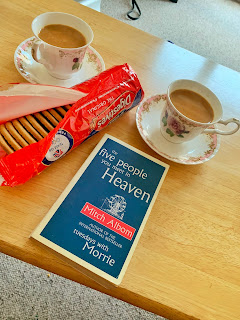Well well here we meet again in yet another review of a marvellous book that is just fitting for this millennial generation and so called ‘Modern era’. It’s been a whole year since I last reviewed. I just can't get over this book until I share it with you all.
The book begins with the author’s story about how he was hit by a baseball bat and how his life has turned upside down since then. He has taken great care in bringing this book together because it is ‘complete’ in many ways.
James explains the science of how habits work by dividing the process of building a habit into 4 simple steps: Cue, Craving, Response and Reward, where the first two belong to the Problem Phase and last two to the Solution Phase. He explains with the example 1) Cue: you walk into a dark room 2) Craving: you want to be able to see 3) Response: you flip the light switch 4) Reward: you satisfy your craving to see.
For making a habit, he transforms these four steps into a practical framework that can be used to design good habits or eliminate bad one’s. James refers to this framework as Four laws of Behaviour Change which includes a simple set of rules -
Steps Good habits Bad habits
Cue make it obvious make it invisible
Craving make it attractive make it unattractive
Response make it easy make it difficult
Reward make it satisfying make it unsatisfying
Now applying this with the above example, you will get the clear picture of how it works.
James discusses all the best ways to start and nurture a new habit by employing various methods like, habit stacking, significance of environment and designing one, temptation bundling, role of family and friends, finding causes of bad habits, taking action and not being in motion, achieving more with less efforts, priming future environment, two minute rule to stop procrastinating, one time actions to lock good habits, immediate and delayed rewards, habit tracking, recovering from habits breakdown, habit contract, role of genes and talents, reviewing habits etc.
And that's not even the best part. For people who already have the habit of reading, it’s not as difficult to read something and apply in their lives as it is for others. So this kind man, James has done it all for you, you don’t need to make notes and then frame it up for your convenience and then start filling in it on your own. There's a summary after every chapter, there's a separate chart summarizing the core of this book for both good and bad habits. There are various templates and cheat sheets like habit scorecard, habit stacking, habit contract, applying it into business and parenting, which can all be downloaded directly from his website which he has linked in the book.
You don’t have to think about anything, no procrastination, no time constraint, no making notes and planning, Nothing, he will take none of it. Everything is meticulously made into a ready framework for you to just START. Wherever you are right now in your life, you just have to start.
Of Course 5/5.
















